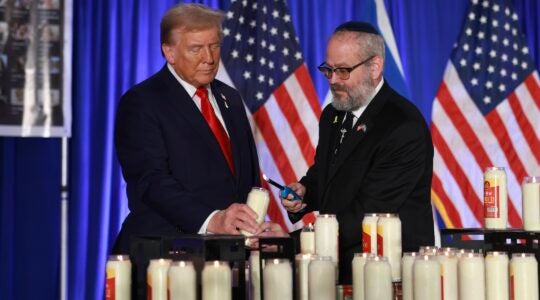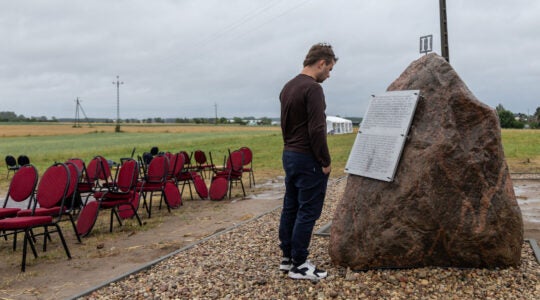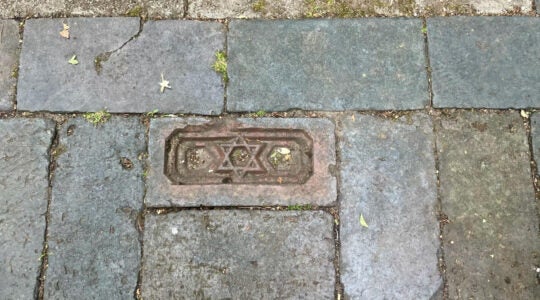(JTA) — Accused Nazi war criminal Sandor Kepiro died in a hospital in Hungary at the age of 97.
Hungarian prosecutors had charged Kepiro, a former World War II gendarmerie officer, with involvement in the killing of about 400 Jews and 800 Serbs during an anti-partisan raid in the Serbian city of Novi Sad, then under Hungarian control, on Jan. 23, 1942.
Kepiro admitted to involvement in the raids but denied any knowledge of the massacre. He was acquitted in July in a trial in Budapest; the decision had been appealed but had not yet been heard when he died Saturday.
Kepiro had returned to Hungary in 1996 from Argentina, to where he fled after World War II. He had been found guilty of involvement in the massacre twice: once by the pre-Nazi Hungarian courts in 1944, and again after the war, in 1946. By then he allegedly had fled via Austria to Argentina.
Upon his returned to Budapest, he was located by Efraim Zuroff, head of the Simon Wiesenthal Center’s Israel office. Zuroff has been searching for Nazi war criminals under the center’s Operation Last Chance program.
Zuroff said in a statement that "it is a fair assumption" that Kepiro’s acquittal could well have been overturned on appeal.
"His death has unfortunately prevented such a decision, which would not only have focused attention on the active role of Hungarian Nazi collaborators in the mass murder of innocent civilians, primarily Jews, during World War II, but also would have ensured that the criminal responsibility of one of the officers who was an active participant in these crimes would have been confirmed, for the first time ever, since democracy in a Hungarian court of law," the statement said.
"His death as a free man in Budapest represents a moral and legal failure of Hungarian courts," Elan Steinberg, vice president of the American Gathering of Holocaust Survivors and their Descendants, said in a statement.
"It is now only left to God to render judgment on Kepiro and his crimes," the statement said.
JTA has documented Jewish history in real-time for over a century. Keep our journalism strong by joining us in supporting independent, award-winning reporting.





